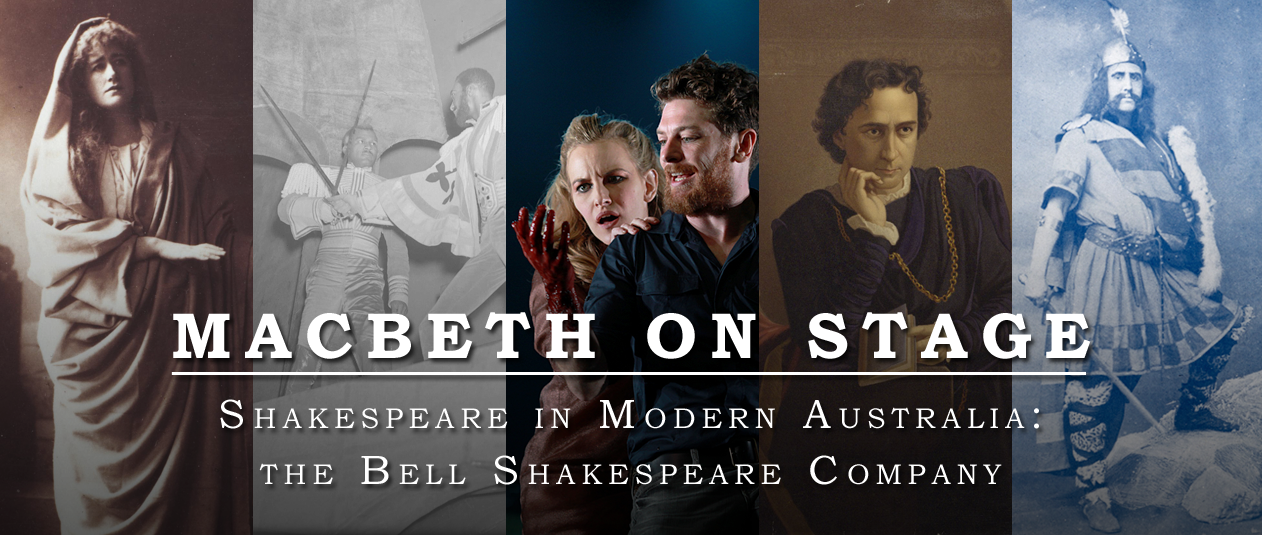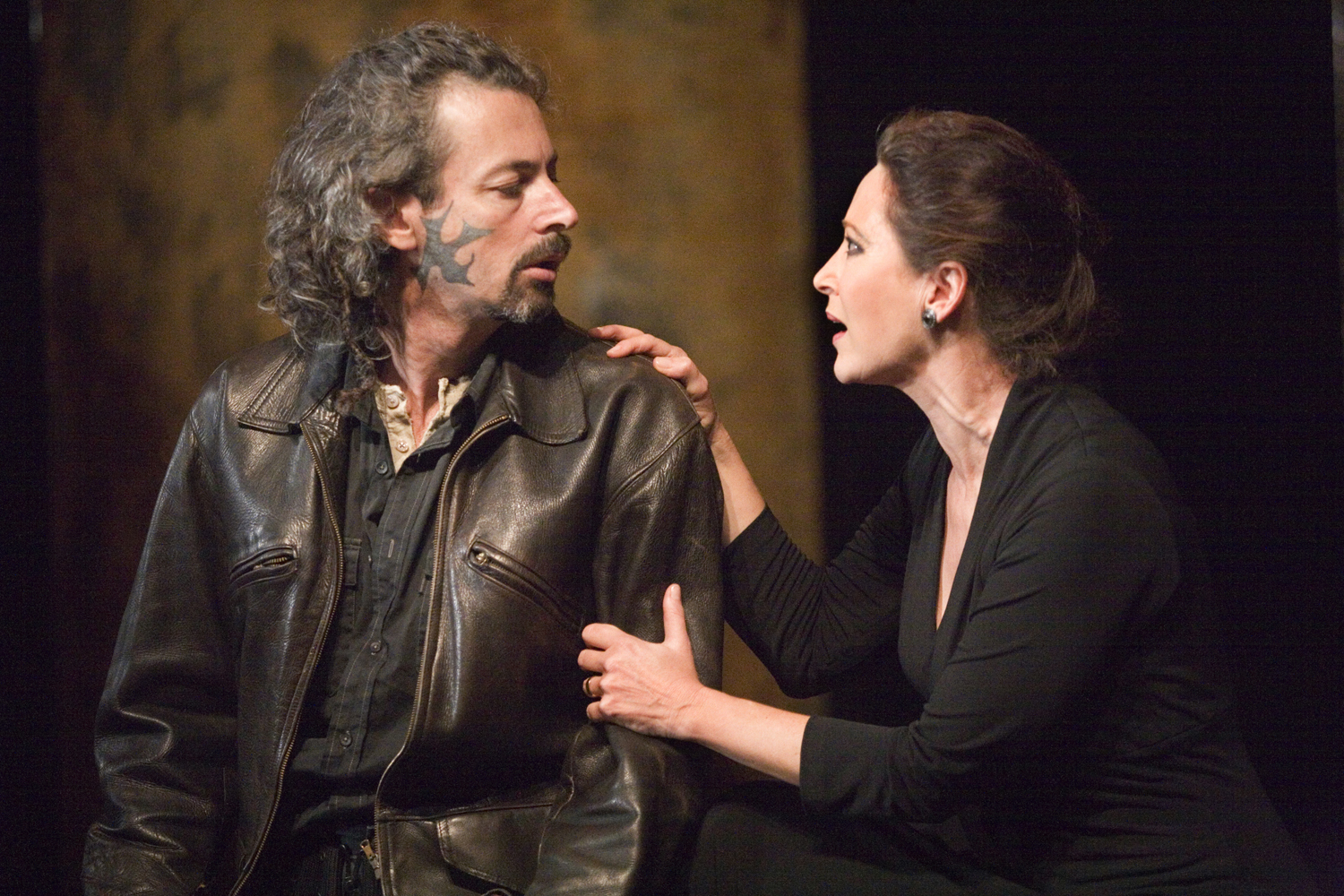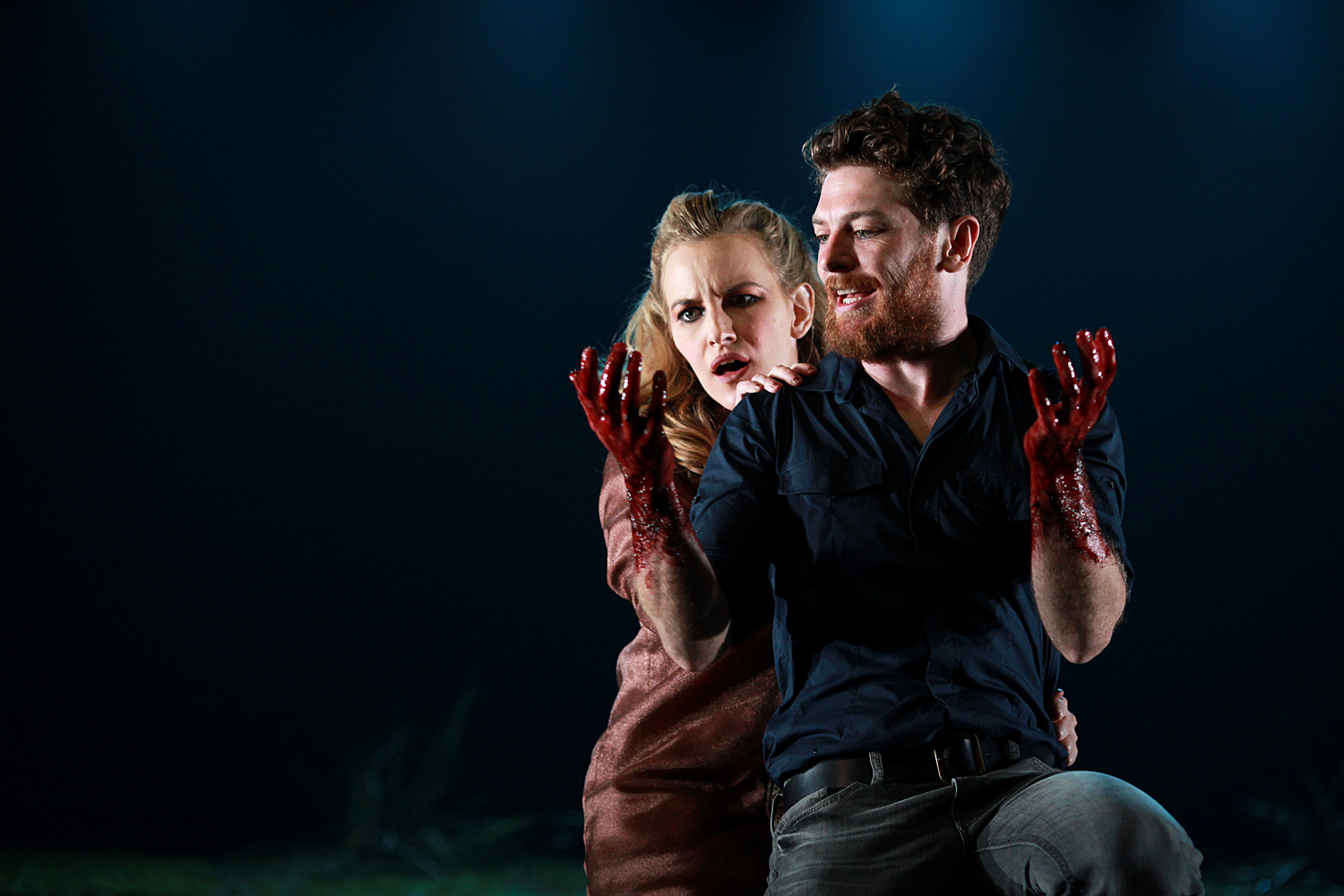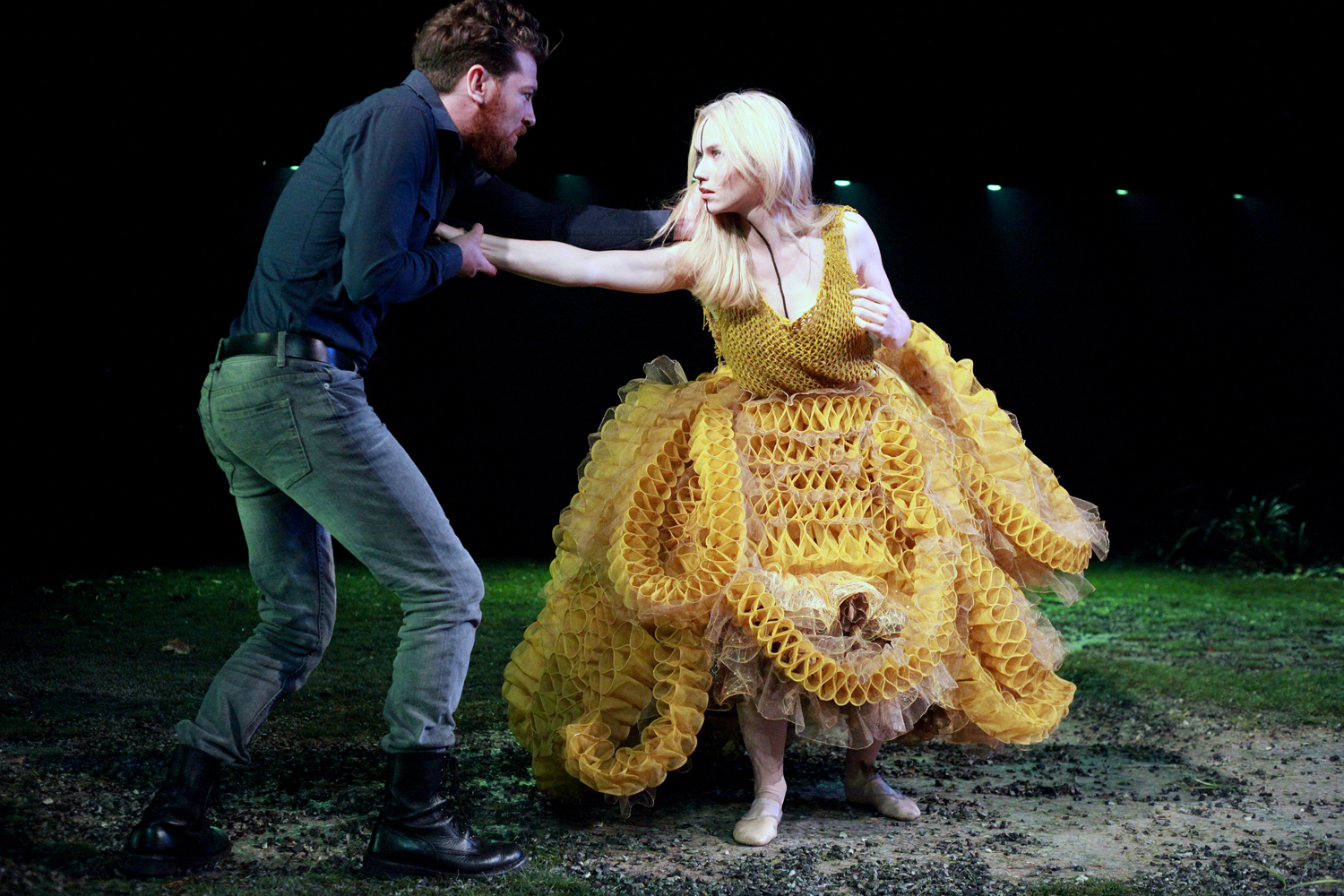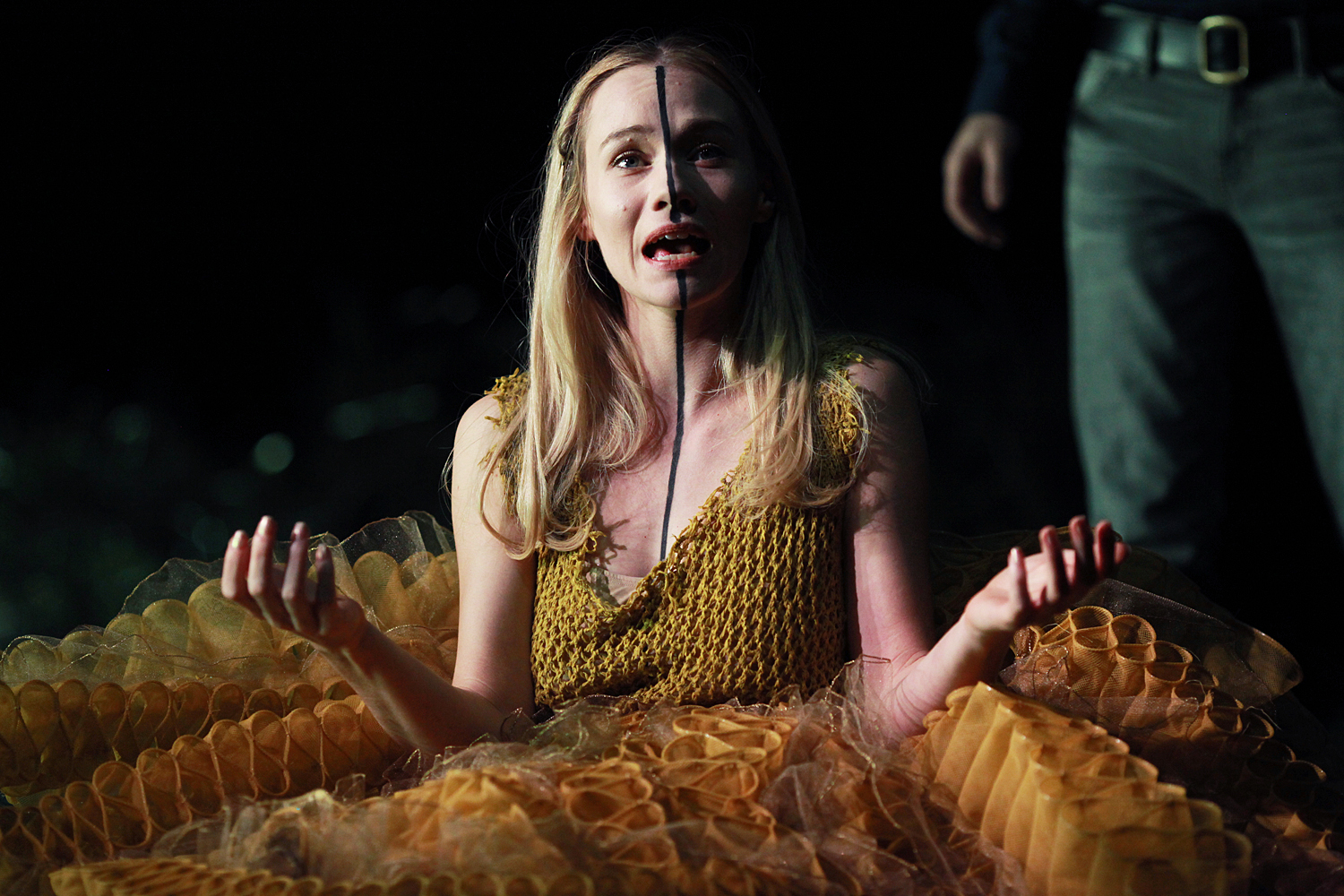Bell Shakespeare Company is Australia’s premier presenter of the Bard’s plays. Toggle the map to discover their productions with data collected from the AusStage database, and scroll down to learn more about the Company.
“Kids love big ideas. I think we feed them too much pap and if they can grapple with big stories and big ideas and big concepts and be taken out of their everyday lives, Shakespeare’s the guy to do it for them.”
—John Bell, interview with Jane Cowan, ABC television, 1 October, 2008
Like Allan Wilkie’s cross-country enterprise, Bell Shakespeare is a hard-working touring company. The eclecticism of its approach to Shakespeare in casting and production reflects the values of Bell himself, who in his autobiography writes of his motivation in starting the company:
The thing I was most keen to pursue was the setting up of an acting ensemble of young performers of various ethnic backgrounds who would bring a fresh energy to performing Shakespeare, as well as a frame of reference that was not merely Anglo-Celtic. I was well aware that our potential audiences, especially school audiences, would be composed of many people from non-English-speaking backgrounds, and I wanted them to feel that this kind of theatre was theirs too.1
The Bell Shakespeare Company has 982 presentations of Shakespeare to its credit, including four productions of Macbeth and two adapted versions of the Macbeth narrative. It has produced 25 of Shakespeare’s plays to date, in countless venues across the country, from the largest and grandest of theatres to small, education-focused school programs.
Founded by renowned Australian theatre actor John Bell, the Bell Shakespeare Company has taken up the mantle of Allan Wilkie: they are the contemporary face of Shakespeare in Australia today. Their productions of Macbeth are vibrant examples of the Company’s efforts to enliven Shakespeare for all Australian audiences.
And on the problem of an authentically Australian Shakespeare, Bell writes:
A major challenge I set myself and the company was trying to find ways to make ‘Australian’ Shakespeare. I don’t mean a parochial outlook that seeks to play up anachronisms and force local references; I mean to find ways to rescue Shakespeare from the deadly perception that it is a British appendage to Australian culture, that the English do it ‘the right way’, that there is some kind of tradition in performing Shakespeare that, like the apostolic succession, is sacrosanct. I am not dismissing or denigrating the heritage of Shakespeare performance in English, which I find a constant source of wonder and admiration. The three years I spent with the RSC was a time of great inspiration and invaluable education… But we have begun to look at Shakespeare’s plays as a fundamental part of Australian cultural life, examining the ways they both shape and reflect our own thoughts and behaviour.2
John Bell himself is a towering figure in Australian culture. Born in 1947, he was a member of a remarkable generation of theatre artists in the 1960s and 1970s who revolutionised the role and scope of Australian theatre in Australian life. Together with directors such as Richard Wherrett, Jim Sharman, Rex Cramphorn, Bryan Nason, he radically changed the perception of Shakespeare for contemporary audiences, staging these plays in a less conventional, more accessible, bolder way. The result is that Shakespeare remains the most popular playwright in the Australian repertoire today, while the legacy of “New Wave” pioneers from fifty years ago is seen in the work of directors like Benedict Andrews, Simon Stone, and Barry Kosky. Bell’s productions of Shakespeare as co-Artistic Director of the Nimrod Theatre in the seventies were the touchstone for this renaissance. Shakespeare’s plays were programmed alongside new Australian drama to make him, in the famous phrase of critic Jan Kott, “our contemporary.”
Over the last 29 years, Bell Shakespeare has presented Macbeth four times. Like the Wilkie company, Bell Shakespeare has worked with many of the renowned Australian actors of its day. However, unlike its predecessor, it maintains an acting ensemble, and this allows it to approach Shakespeare’s plays in ways that push them into a new zone of theatrical experiment.
“I wanted them to feel like this kind of theatre was theirs too.”
—John Bell, The Time of My Life, p. 187
In 2009, for example, the company commissioned the popular children’s author Andy Griffiths to adapt the Macbeth story for a children’s audience. For Griffiths, Macbeth “is someone who does what he knows he should not do and comes to regret it enormously. And I think you can understand that little journey whether you’re five years old or much older.”3
The result was Just Macbeth! where three children, Andy, Lisa and Danny are practicing a scene from Macbeth. They then drink the potion, which sends them into Shakespeare’s play where Andy is Macbeth, Danny is Banquo and Lisa is Lady Macbeth, urging Andy to kill the king. At the end, it is revealed that the entire play was Andy, Danny and Lisa’s version of Macbeth.
Scholar Adrian Kiernander, a historian who has studied the company, has written extensively on its ethos and practices. On Shakespeare in Australia today he has written,
During the past two hundred years [Australian companies] have, with enthusiasm and tenacity, claimed Shakespeare for themselves and their audiences…The challenge now for the Bell Shakespeare Company…is to keep finding fresh and appropriate ways of responding to and transforming these traditions, and constantly renewing meaningful connections between the plays and their audiences in the new millennium.4
Bell Shakespeare’s 2019 season features Macbeth once more in a co-presentation with the Sydney Opera House—the Company’s latest effort to bring an experimental and enthralling version of the Scottish play to students, scholars, and enthusiasts alike.
PREVIOUS: Explore the landmark all-black production of Macbeth directed by Orson Welles.
NEXT: Read the site’s bibliographic material.
- Bell, John, The Time of My Life, Crows Nest, N.S.W.: Allen & Unwin, 2003, 187.
- Bell, John, The Time of My Life, Crows Nest, N.S.W.: Allen & Unwin, 2003, 189.
- Bramall, Patrick, Wayne Harrison, Andy Griffiths, and John Bell. “Bell Shakespeare Transforms Macbeth for Kids.” Interview by Jane Cowan. ABC Television, October 1, 2008. Video. https://www.abc.net.au/7.30/bell-shakespeare-transforms-macbeth-for-kids/2677114.
- Kiernander, Adrian. “John Bell and a post-colonial Australian Shakespeare, 1963-2000,” in O brave new world: Two centuries of Shakespeare on the Australian stage, edited by John Golder and Richard Madelaine, Sydney: Currency Press, 2001, p.254.
